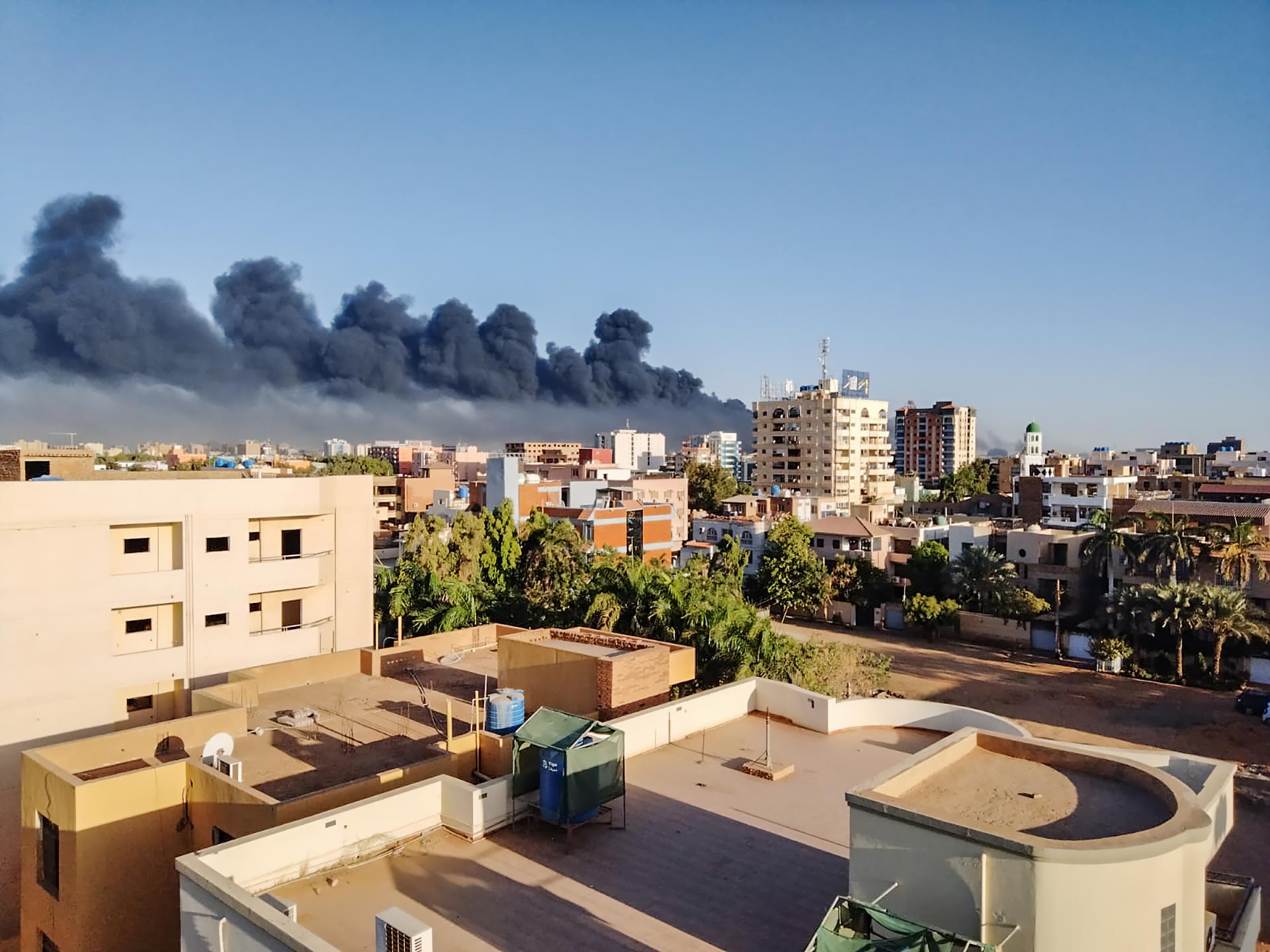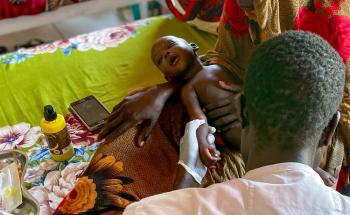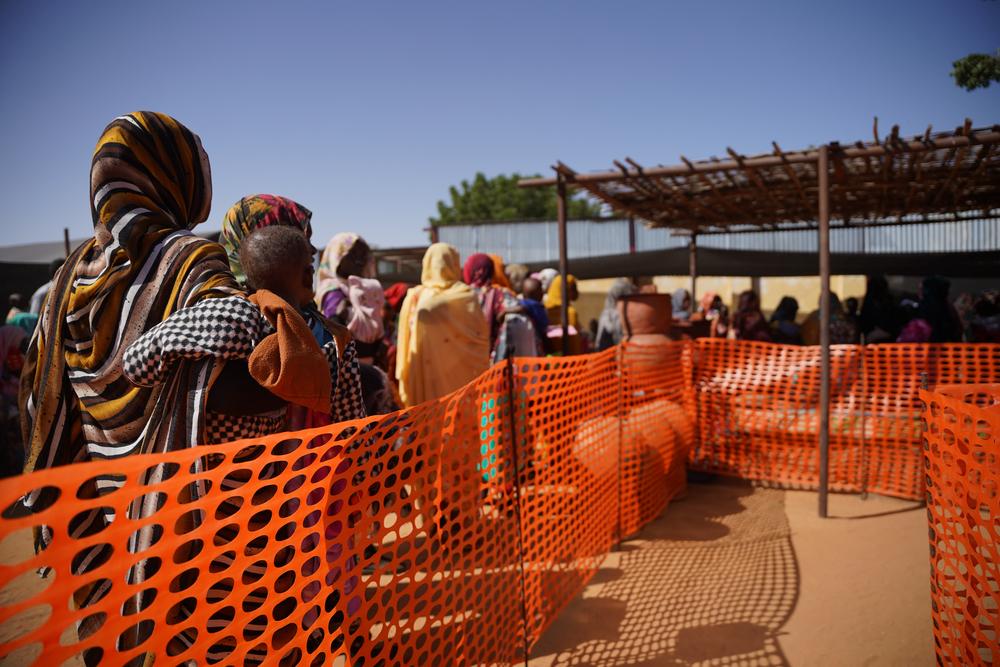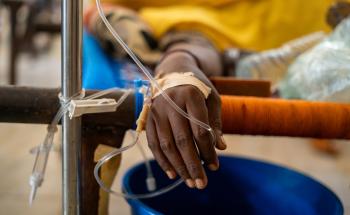After one year of war in Sudan, the aid provided to millions of people is a drop in the ocean due to political blockages created by the warring parties and a lack of action from the United Nations and international humanitarian organisations.
Port Sudan/Darfur, 12 April 2024 – In one of the world's worst crises for decades, Sudan is facing a colossal, man-made catastrophe one year after the start of the war between the Government-led Sudanese Armed Forces (SAF) and the paramilitary Rapid Support Forces (RSF). It is a matter of life or death for millions of people to urgently enable safe humanitarian access. As governments and officials, aid organisations, and donors meet on 15 April in Paris to discuss ways to improve the delivery of humanitarian aid, Médecins Sans Frontières (MSF) is making an urgent call for them to scale up the humanitarian response immediately.
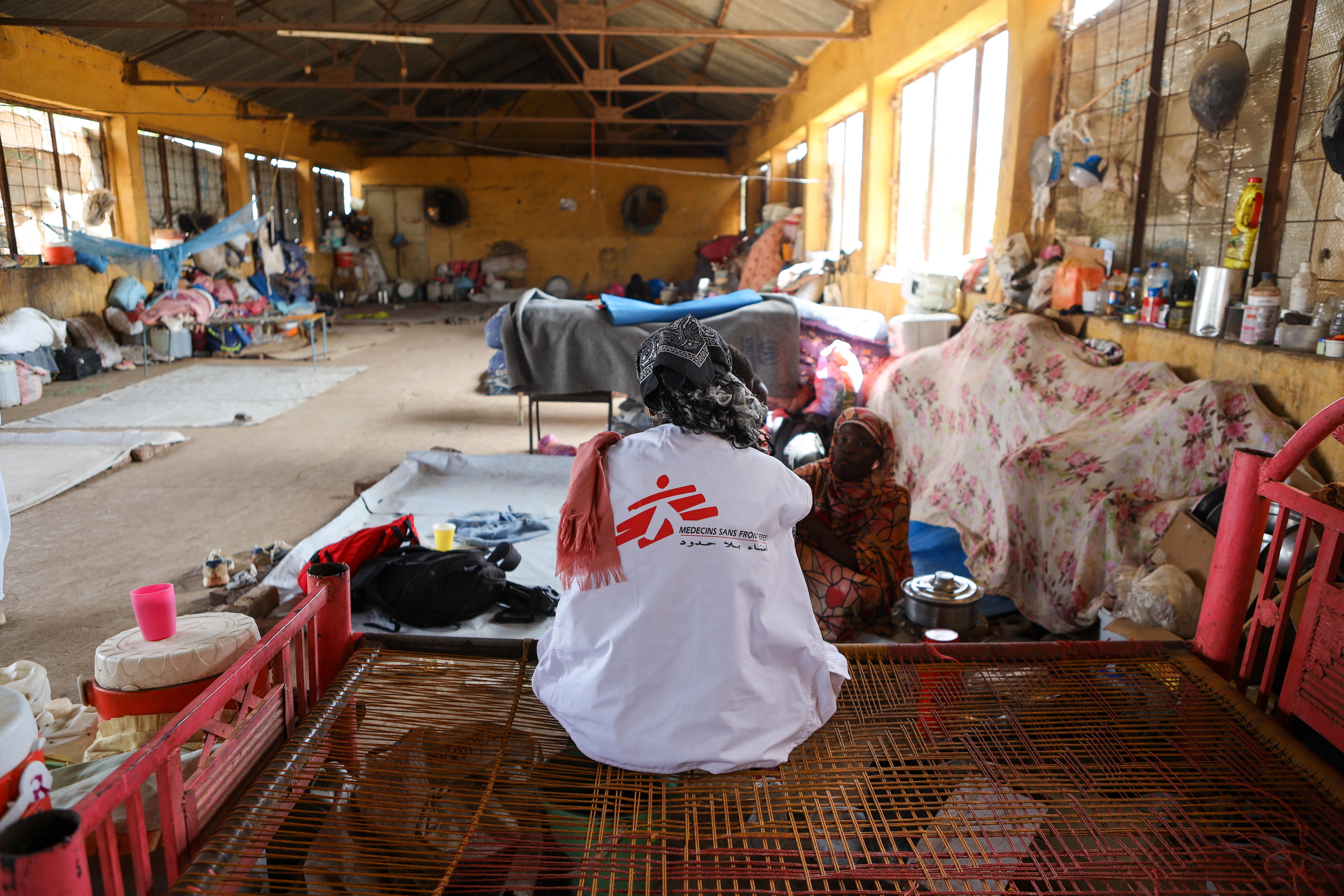
Every day, we see patients dying because of violence-related injuries, children perishing due to malnutrition and the lack of vaccines, women with complications after unsafe deliveries, patients who have experienced sexual violence, and people with chronic diseases who cannot access their medicines.Jean Stowell, MSF head of mission in Sudan.
Millions of people are at risk, yet the world is turning a blind eye as the warring parties intentionally block humanitarian access and the delivery of aid. The United Nations (UN) and member states must redouble their efforts to negotiate safe and unhindered access and scale up the humanitarian response to prevent this already desperate situation from deteriorating any further.
“People in Sudan are suffering immensely as heavy fighting persists —including bombardments, shelling and ground operations in residential urban areas and in villages—, and the health system and basic services have largely collapsed or been damaged by the warring parties. Only 20 to 30 per cent of health facilities remain functional in Sudan, meaning that there is extremely limited availability of health care for people across the country,” says Jean Stowell, MSF head of mission in Sudan.
In areas close to hostilities, MSF teams have treated women, men and children directly injured in the fighting, including shrapnel wounds, blast injuries, gunshot injuries, and stray bullets. Since April 2023, MSF-supported facilities have received more than 22,800 cases of traumatic injuries and performed more than 4,600 surgical interventions, many of them related to the violence which occurred in Khartoum and Darfur. In Wad Madani, a town surrounded by three active frontlines, we see currently 200 patients per month with violence related injuries.
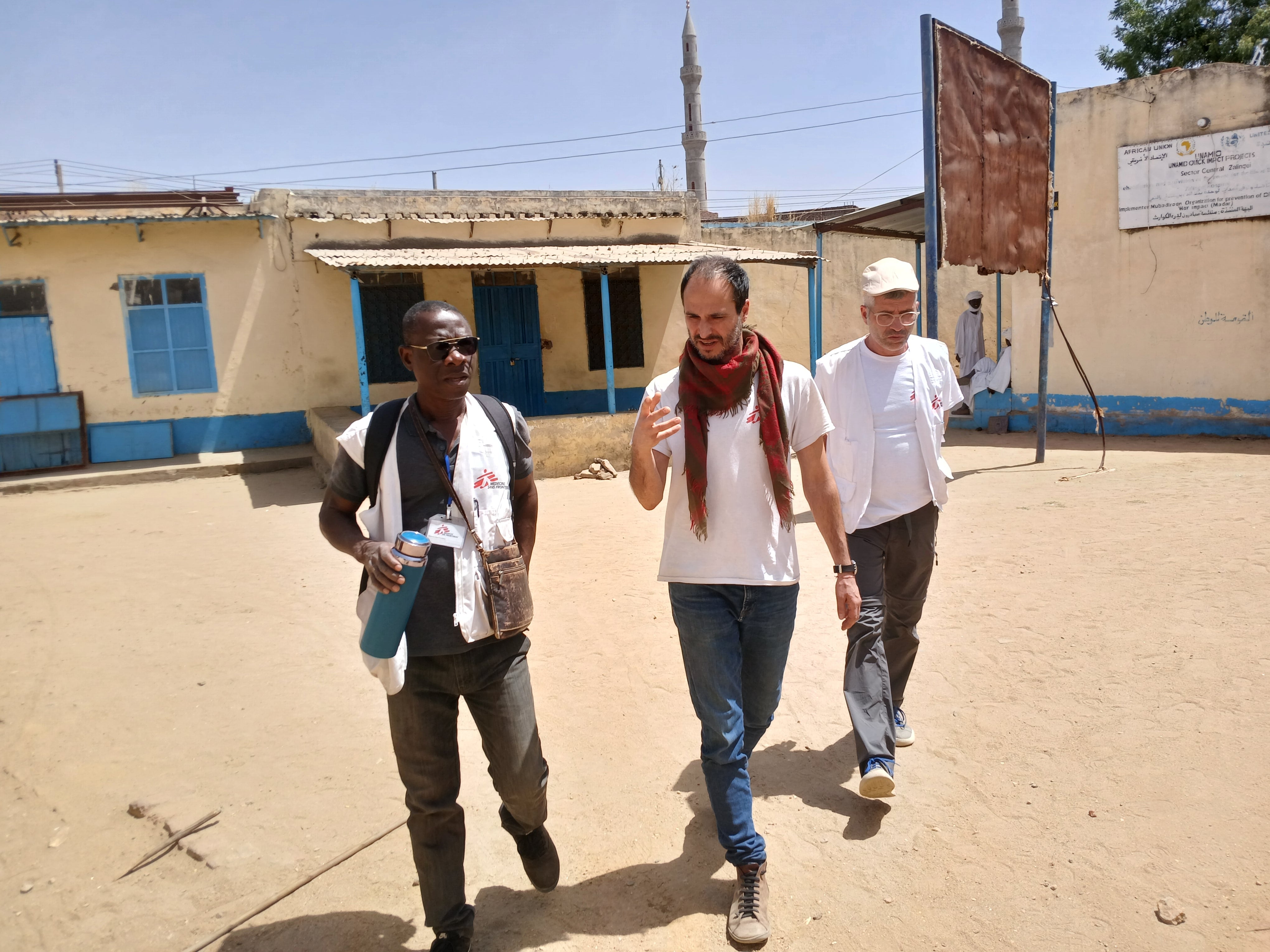
One year of War in Sudan
According to the UN, more than eight million people have already been forced to flee their homes and been displaced multiple times, and 25 million – half of the country’s population – are estimated to be in need of humanitarian assistance. “Every day, we see patients dying because of violence-related injuries, children perishing due to malnutrition and the lack of vaccines, women with complications after unsafe deliveries, patients who have experienced sexual violence, and people with chronic diseases who cannot access their medicines,” Stowell continues. “Despite all this, there is an extremely disturbing humanitarian void.”
Although MSF works in good cooperation with the Ministry of Health (MoH), the Government of Sudan (GoS) has persistently and deliberately obstructed access to humanitarian aid, especially to areas outside of their control: it has systematically denied travel permits for
humanitarian staff and supplies to cross the front lines, restricted the use of border crossings, and established a highly restrictive process for obtaining humanitarian visas.
“Today, our biggest challenge is the scarcity of medical supplies. We've run out of surgical equipment, and we are on the brink of stopping all work unless supplies arrive,” says *Ibrahim , an MSF doctor working in Khartoum, a city that has been under a blockade for the past six months. A similar situation has been impacting the city of Wad Madani since January.
MSF calls on warring parties to adhere to International Humanitarian Law and the humanitarian resolutions of the Jeddah declaration2 by putting in place mechanisms to protect civilians and to ensure safe humanitarian access to all areas of Sudan without exception.MSF
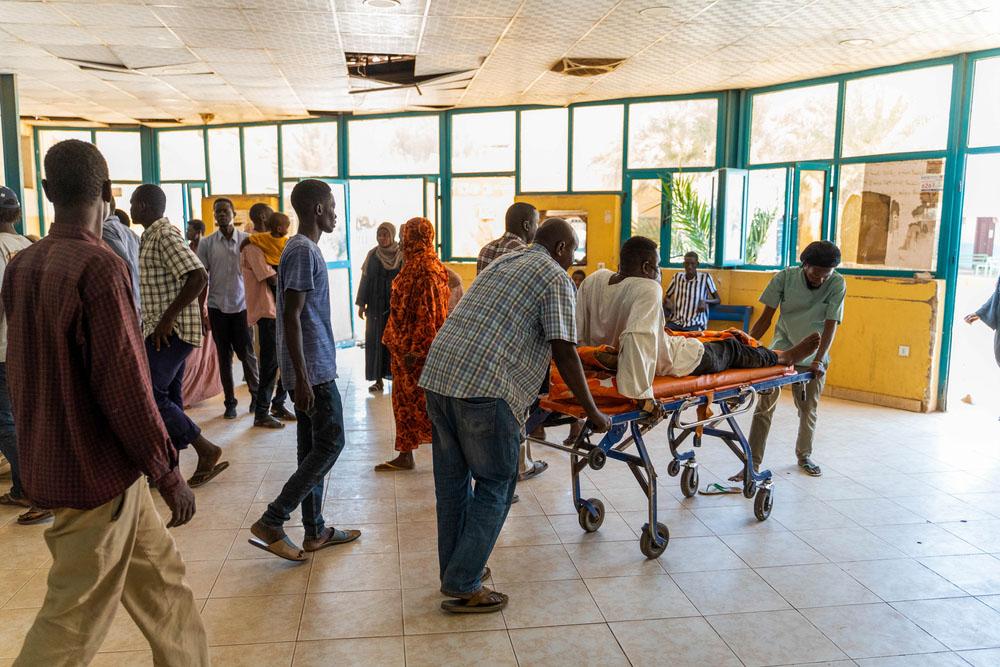
In RSF-controlled areas, where many different militias and armed groups also operate, health facilities and warehouses were frequently looted in the first months of the conflict. Incidents such as carjackings continue on a regular basis and medical workers, particularly from the Ministry of Health, have been harassed and arrested.
In hard-to-reach areas like Darfur, Khartoum or Al Jazirah, MSF often finds itself the sole or one of the few international humanitarian organisations present, while needs far exceed our capacity to respond. Even in more accessible areas such as White Nile, Blue Nile, Kassala and Gedaref states, the overall response is negligible: a drop in the ocean.
One example is the catastrophic malnutrition crisis in Zamzam camp in North Darfur, where there have been no food distributions from WFP since May 2023. Almost a quarter (23 per cent) of children we screened there in a rapid assessment in January were found to be suffering from acute malnutrition – seven percent were severe cases. 40 per cent of pregnant and breastfeeding women were suffering from malnutrition, and there was a devastating mortality rate across the camp of 2.5 deaths per 10,000 people per day.
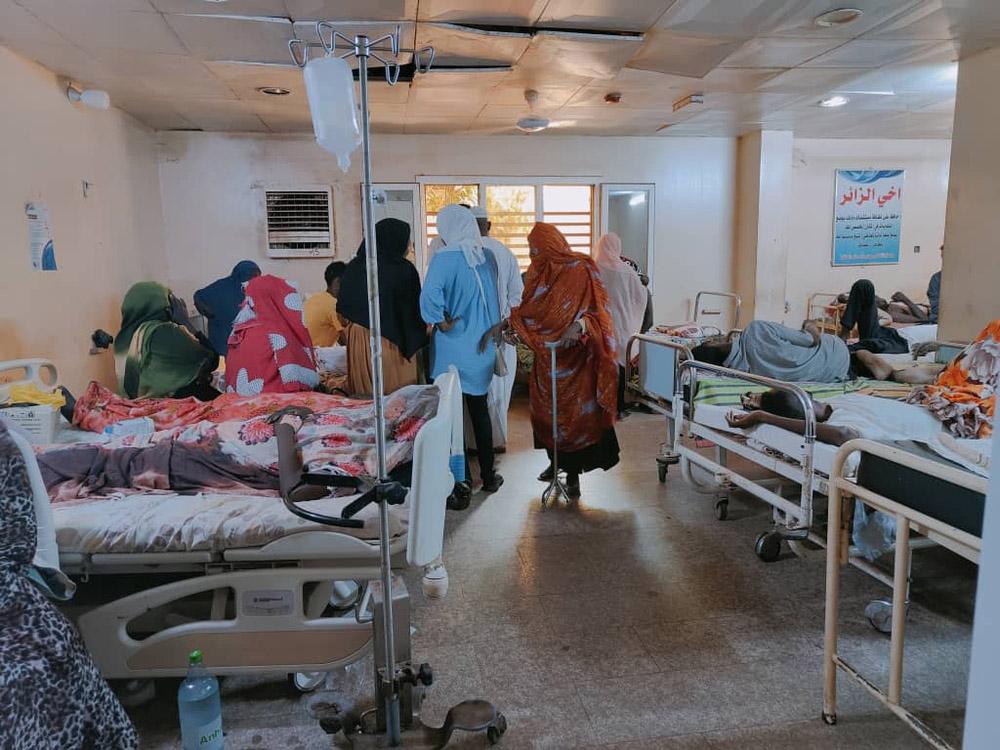
“The situation in Sudan was already very fragile before the war and it has now become catastrophic. In many of the areas where MSF has started emergency activities, we have not seen the return of the international humanitarian organisations that initially evacuated in April,” says Ozan Agbas, MSF Emergency Operations Manager for Sudan.
Khadija Mohammad Abakkar, who had to flee her home in Zalingei, Central Darfur, in search of safety, recounts how difficult it was to survive without humanitarian assistance: “During the fighting, there was no access to health care or food in the camp. I sold my belongings to earn some money for food.”
While these are difficult conditions in which to operate, the response should have increased, not diminished, especially in the areas where access is possible. Increased efforts are urgently needed by all humanitarian actors and organisations to find solutions to these problems and scale up activities across the country.
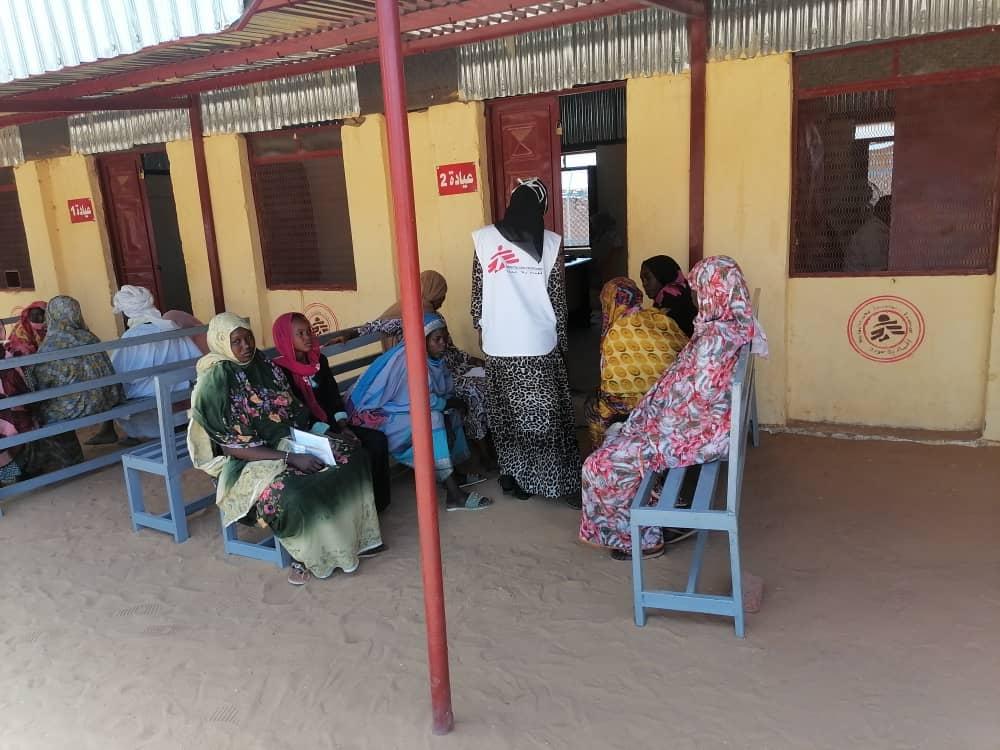
“The United Nations and their partners have persisted in self-imposed restrictions on accessing these regions and, as a result, they have not even pre-positioned themselves to intervene or establish teams on the ground when opportunities arise,” Agbas continues.
MSF calls on warring parties to adhere to International Humanitarian Law and the humanitarian resolutions of the Jeddah declaration by putting in place mechanisms to protect civilians and to ensure safe humanitarian access to all areas of Sudan without exception – including stopping blockages. MSF also calls on the UN to show more boldness in the face of this enormous crisis and to focus on clear results related to increasing access so that they actively contribute towards enabling a rapid and massive scale-up of humanitarian assistance. MSF also urges donors to increase funding for the humanitarian response in Sudan.
*Name changed to protect identity
Patient testimonies
“We suffered a lot. For three days, we couldn't sleep. Now, where we are is also bad.”
I have been displaced by the war in Sudan. Five months ago, I was forced to flee my home in the displaced camp of Hasahissa, in Zalingei, Central Darfur, Sudan. I sought refuge in the displaced camp of Tululu, approximately one hour away from her home.
When the problems started between SAF and RSF, I lived at the edge of the [Hasahissa] camp, which was close to a military base. The militia would come into our homes and loot our belongings.
During the fighting, the camp had no access to health care or food. I sold my belongings to earn some money for food. Eventually, the security situation became too difficult, and I was forced to move to Tululu camp, one hour away.
We suffered a lot. For three days, we couldn't sleep [in Hasahissa camp]. Now, where we are is also bad, because we don´t have enough food.
In Tululu camp, we don´t have access to health care me and my family. I traveled over an hour to Zalingei Teaching Hospital to receive treatment for my child Malaki, who tested positive for malaria at the hospital.
In Hasahissa camp [previous home], we would receive medication for free. Here in Zalingei, it´s not the same. But today [for the first time], we received medication for free.
MSF teams are supporting the Zalingei Teaching Hospital. On April 2nd, the hospital opened the newly refurbished emergency department, where MSF teams support the Ministry of Health staff with incentives, training, and rehabilitation of the facility.
I was in Darfur and had to flee in 2003. My journey took me to Myala, and now, escaping from there, I've arrived here.
Numerous families trapped in perilous areas are desperate to reach this safe haven. However, the journey here is fraught with challenges: it's costly and perilous, coupled by frequent attacks and rampant looting. The attackers leave nothing behind. We urgently need both transportation and protection. The current circumstances are horrific beyond words."
The conflict ravaging Sudan is unspeakable. We find ourselves escaping one war zone only to enter another conflict here in South Sudan. We're in dire need of help and wish for our plight to be known. The future remains uncertain, especially for our children. Will they ever return to school?
The war has inflicted severe trauma. I have three children; the youngest, born amidst conflict, is just two months old. The constant worry is unbearable. My children are deprived of their education, unable to grow or learn. Their daily tears are for the longing to study.”
“The warehouse where I was standing was bombed and 15 out of 20 people were killed in the attack”.
My name is William Jokite, 19 years old. I’m South Sudanese, and I was working in Khartoum when the war broke out in April 2023. The warehouse where I was standing was bombed and 15 out of 20 people were killed in the attack. After we thought it calmed down, we crawled out. One of my colleagues tried to stand up and run but we saw him being shoot in the neck, he died instantly. With a car we found, I drove until it ran out of fuel, and then we continued on foot. However, a previous injury sustained when I was bathing in the river slowed me down, and my friends left me behind to travel faster.
Alone and in pain, I walked for three days and nights without rest, worsening my injured foot. I fear for its future, but I must press on to reunite with my family in Maban, recalling the nights I wake to memories of my siblings playing in the yard. I just wanted to be with them again.
Back in Khartoum, we sought to leave when the fighting broke out, but our boss insisted on group departures only. Rockets struck our compound, leaving only five survivors. We navigated through the conflict zone, witnessing intense battles until we found relative safety.
We continued with our journey and after some time, we got an abandoned car. We started the car and I drove it until we reached to Block 3. There we came out of the car and abandoned it there and we when into our residential area.
The next morning, at around 7 am, fighting started, and there was shooting everywhere. They fought, fought and fought until they reached the Barracks of the army in Korton. We came to witness what was happening. Both the SAF and RSF soldiers showed no intention to harm unless we disobeyed their orders. They threatened to shoot us.
